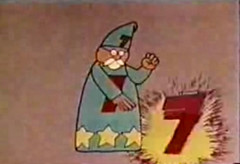The party form
O braungebackne Siegessäule,Let’s set aside the Victory Column for now—to me it primarily signifies regret, for, when I was in Berlin several years ago, I was ignorant of any relevant history, and if I did encounter the Column during my wanderings in the Tiergarten, it computed only in the most generic way—and let's look at something whose associations are more promising, the winter sugar: the snow-padded night-silence, the strange, expectant character of light on a morning after it has snowed, the ice-rainbow layers of cascading window frost-crystal patterns, icing made from confectionary sugar and lemon juice and swirled onto brown-baked gingerbread men in all manner of boots and buttons—there are two men left from my last batch—the promise of Turkish Delight from the Queen’s snowy Narnia, any unnamable background sparkles that shiver you when you are asked, Are you going to Araby? If you believe, minimally, in winter sugar, then go read John’s defense of Christmas as a secular holiday, a protean winter force whose sensuous content and solstitial timing and popular spirit and historical patchworkedness explode any reduction to particular religious themes, unless you’re willing to really change what you mean by religious themes.
mit Winterzucker aus den Kindertagen.
O brown-baked Victory Column,
With winter sugar of childhood days.
—Walter Benjamin, epigraph to Berlin Childhood Around 1900
John’s essay gives sense to the phrase “the party form,” which I borrow from the title of a recent Long Sunday post, in a second way as well. Those of you who still try to read LS will notice an important difference between John’s style of sense-making and the style dominant there. LS seems to me increasingly autistic in its mind-blindness; it proceeds as if the actual social world, in which people eat sausages and drink mulled wine at night-markets, does not exist; its store of forms of thought lacks the party form, the mode of cognition that allows us to make connections to people we know in life or imagination; it is the equivalent of a newspaper chess column that prints the moves without even giving you a picture of the men on the board. LS thinks in near-referentless proper nouns—“I want to continue the trend of bringing Benjamin into relation with Foucault, without reducing discussion to Agamben”—and it converts quasi-abstract nouns like “law,” “violence,” and “power” into sheer surfaces of sound, impossible to define with reference to anything the body knows. John’s style of writing—the party form—suggests, by contrast, that if we want to learn something about these topics, we ought to peek out into the world of people and think about, e.g., the ACLU, Bill O’Reilly’s anti-Semitism, or Emperor Aurelian’s calendrical sleight of hand.


0 Comments:
Post a Comment
<< Home